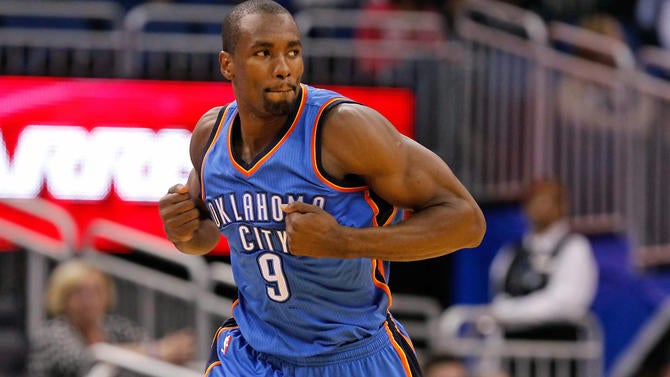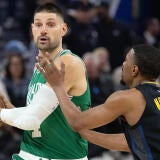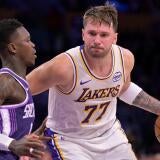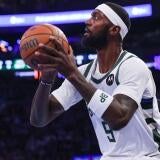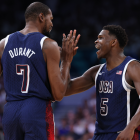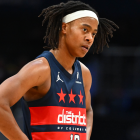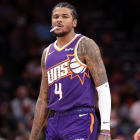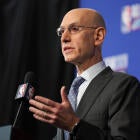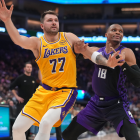Once again the Thunder make a shrewd Thunder move by trading Serge Ibaka
This feels a lot like the James Harden deal in 2012

The eyes of the NBA will be on the Oklahoma City Thunder on July 1 when Kevin Durant officially becomes a free agent. They made a preemptive move into the spotlight on draft night, sending Serge Ibaka to the Orlando Magic, league sources confirmed to CBS Sports.
For a team that won 55 games and finished one win shy of the NBA Finals, it was a stunningly significant shakeup. Ibaka, 26, had been a key component of the Thunder's core for seven years alongside Durant and Russell Westbrook.
But Ibaka had grown unhappy with his role, a person familiar with the situation told CBS Sports, and was considered likely to leave as an unrestricted free agent in 2017. Though Ibaka had not requested a trade, it was reasonable to expect that such a request could be on the horizon.
Facing a similar situation with James Harden in 2012, Oklahoma City didn't wait to be backed into a corner with no leverage. The Thunder traded Harden to the Houston Rockets, who promptly signed him to a five-year, $80 million extension. Since then, the Rockets have made one Western Conference finals to the Thunder's two.
Ibaka has one season and $12.3 million left on his deal, and with the salary cap soaring to at least $109 million in 2017, he would've been in peak demand. Rather than wait that situation out and try to repair it -- as they did with Reggie Jackson before finally sending him to the Detroit Pistons in 2015 -- the Thunder tried once again to get ahead of the problem.
And in the process, they also gave themselves a plethora of options, both from a lineup perspective and from a roster standpoint as they head into the most important free-agent period in franchise history.
Oklahoma City sent Ibaka to the Magic for Victor Oladipo, Ersan Ilyosova and the rights to No. 11 pick Domantas Sabonis, league sources confirmed. The first thing to understand is that the trade never would have been made if there was a chance it would have affected Durant's decision in free agency; it won't, said a person close to the All-Star and former MVP.
"I want to acknowledge Serge for his contributions to the ongoing legacy of the Thunder," Thunder GM Sam Presti said. "He has been integral to our success and growth, has been a great community member and we wish him only the best."
But instead of an unhappy camper in their starting lineup, the Thunder improved their depth and added certainty to their roster. Oladipo gives them a young, versatile, explosive guard who is still on his rookie contract; he was the No. 2 overall pick in 2013. He also provides some protection in the event that Dion Waters lands an absurd offer sheet -- though Waiters most certainly is in the Thunder's plans, and could even start in some smaller lineups.
Ilyasova provides length and experience on an $8.4 million expiring contract. And Sabonis, son of Hall of Famer Arvydas Sabonis, is viewed as a precocious prospect who could quickly mature into a frontcourt starter in the same way that Steven Adams did. If Durant and Westbrook (a free agent in 2017) decide to stay, the plan is for them to get very accustomed to playing with Adams and Sabonis, who project as a physical, fearless frontcourt for years to come.
So instead of selling off pieces in the quest for a shiny free-agent object to entice Durant to stay, the Thunder have surrounded him with youth and depth on controllable contracts. It's a novel concept; positioning your team and your stars to thrive well into the future, rather than going for the home run or quick fix.
Oklahoma City now has five recent lottery picks under age 25 in their rotation -- Adams, Waiters, Enes Kanter, Cameron Payne and Oladipo -- with another one, Sabonis, 20, entering the fray as the starting power forward in waiting.
The attention shifted to Oklahoma City on draft night -- in a big way, and a bit in advance of the real free-agent fireworks to come. Given the Thunder's history, it's a predicament that they tend to view more as an opportunity.
